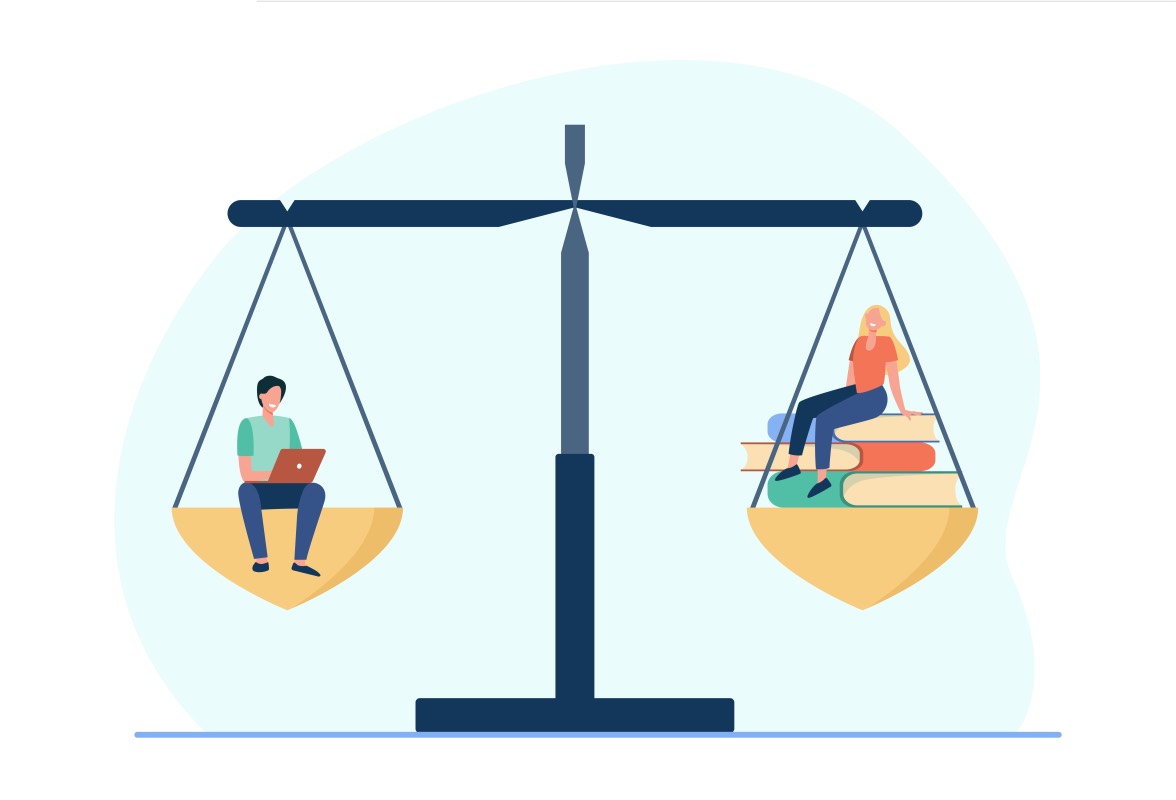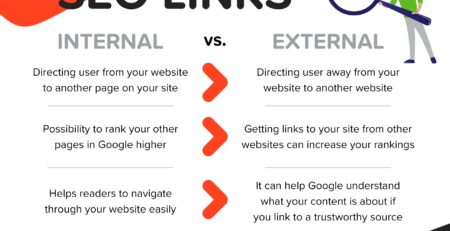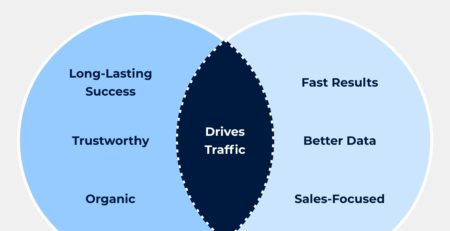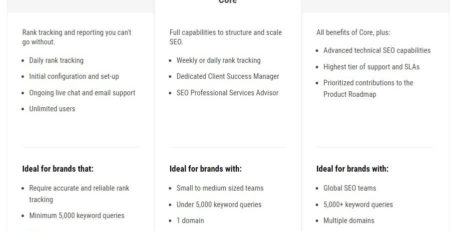What Do You Need To Balance When Doing Seo?
If you’ve ever wondered what it takes to ace SEO, you’ve come to the right place! SEO, or search engine optimization, is all about balancing different elements to make sure your website ranks high on search engine results. But what exactly do you need to balance when doing SEO? Let’s dive in and find out!
When it comes to SEO, finding the perfect balance is key. You need to strike a harmony between optimizing your website for search engines and providing a great user experience. It’s like walking a tightrope – too much focus on keywords and you’ll risk alienating your visitors, but neglecting SEO altogether means your website might not reach its full potential.
So, what are the key elements that need to be balanced when doing SEO? Firstly, you need to pay attention to your website’s content. Keywords play a crucial role in SEO, but it’s important not to go overboard. Find the right balance by incorporating keywords naturally and providing valuable, informative, and engaging content for your readers.
In summary, mastering SEO requires finding the right equilibrium. By balancing keywords, user experience, and quality content, you can ensure your website not only climbs the search engine rankings but also provides value to your visitors. So, let’s delve deeper into these elements and uncover the secrets to SEO success!

What Do You Need to Balance When Doing SEO?
When it comes to SEO, there are many factors that need to be balanced in order to achieve success. From on-page optimization to off-page link building, keyword research to competitor analysis, there are various elements that need to be considered. In this article, we will delve into the key aspects that SEO professionals need to balance in order to maximize their efforts and drive organic traffic to their websites.
1) Balancing Keywords and User Intent
Keywords are the foundation of SEO, but it’s not just about stuffing your content with as many keywords as possible. It’s important to strike a balance between optimizing your content for search engines and providing valuable, user-friendly information. Understanding user intent is crucial in this process. By identifying what users are searching for and tailoring your content to meet their needs, you can strike a balance between keyword optimization and user experience.
Additionally, it’s important to diversify your keyword strategy. Instead of solely focusing on high-volume keywords, consider long-tail keywords that are more specific and have lower competition. This will help you rank for niche searches and attract highly targeted traffic.
In order to maintain the right balance, regularly analyze your keyword performance and adapt your strategy accordingly. Keep track of changes in search trends, user behavior, and your competitors’ actions to stay ahead of the game.
2) Balancing On-Page and Off-Page SEO
Both on-page and off-page SEO are essential for a well-rounded optimization strategy. On-page SEO refers to optimizing elements within your website, such as meta tags, headers, keywords, and content quality. Off-page SEO, on the other hand, focuses on building high-quality backlinks and increasing your website’s authority.
To strike a balance, start by optimizing your on-page elements to ensure that your website is relevant and well-structured. Create valuable and engaging content that targets your keywords appropriately. However, don’t neglect the importance of off-page activities. Building backlinks from reputable sources can significantly improve your website’s rankings.
Remember, it’s not just about quantity, but also quality. Focus on acquiring backlinks from authoritative websites that have a strong domain authority. This will signal to search engines that your website is trustworthy and relevant, helping to boost your rankings in search results.
3) Balancing Technical SEO and User Experience
Technical SEO encompasses various aspects, including site speed, mobile-friendliness, crawlability, and indexability. These elements are essential for search engines to understand and navigate your website. However, it’s important not to overlook the user experience aspect of SEO.
A slow-loading website, poor mobile optimization, or confusing navigation can negatively impact user experience and lead to higher bounce rates. Therefore, it’s crucial to strike a balance between technical optimization and providing a seamless user experience.
Regularly analyze your website’s performance and eliminate any technical issues that may hinder its usability. Focus on improving website speed, implementing a responsive design, and enhancing the overall user interface. By optimizing for both search engines and users, you’ll create a harmonious balance that will ultimately improve your website’s visibility and conversion rates.
Additional Considerations for Balancing SEO Efforts
4) Balancing Quantity and Quality of Content
When it comes to content creation, it’s important to strike a balance between quantity and quality. While regularly producing new content is essential for search engine visibility, it’s equally important to focus on delivering high-quality, valuable information to your audience. Aim for a consistent content schedule that allows you to maintain quality while consistently publishing new material.
5) Balancing Organic and Paid Search Strategies
While organic search is the foundation of SEO, paid search strategies can complement your efforts and provide a boost in visibility. Strike a balance between organic and paid search by leveraging paid advertising to target specific keywords or demographics that may be difficult to rank for organically.
6) Balancing SEO and User Engagement Metrics
While search engine optimization is crucial for driving organic traffic, it’s equally important to consider user engagement metrics. Factors such as bounce rate, time on site, and conversion rates provide valuable insights into how users interact with your website. Balancing SEO efforts with an emphasis on user engagement will lead to better overall performance in search engine rankings.
7) Balancing Short-Term and Long-Term SEO Strategies
SEO is a long-term strategy, but it’s also important to consider short-term wins. Balancing short-term optimizations, such as quick site fixes or targeted keyword optimizations, with a long-term approach focused on consistent improvements and high-quality content will lead to sustained success in the ever-changing world of SEO.
In conclusion, successful SEO requires careful balance across various elements. From keywords and user intent to on-page and off-page optimization, as well as technical SEO and user experience, finding the right equilibrium is key. By implementing a holistic approach and regularly adapting your strategy, you can achieve a harmonious balance that maximizes the impact of your SEO efforts.
Key Takeaways: What Do You Need to Balance When Doing SEO?
– It’s important to create high-quality and relevant content that is optimized for search engines.
– Balancing on-page and off-page SEO techniques is crucial for better rankings.
– Regularly monitoring and analyzing your website’s performance and making necessary adjustments is key.
– Building a strong backlink profile through ethical methods can greatly improve your SEO efforts.
Frequently Asked Questions
When it comes to SEO, there are several factors you need to balance to ensure success. Below are some frequently asked questions to help you navigate the world of search engine optimization:
1. How important is keyword research in SEO?
Keyword research is vital in SEO because it helps you understand the words and phrases your target audience uses to search for your products or services. By identifying relevant keywords, you can optimize your website’s content and meta tags accordingly, making it easier for search engines to understand and rank your site for those specific queries.
However, it’s important to strike a balance. While incorporating keywords is crucial, you should prioritize providing valuable and engaging content to your audience. Focus on creating high-quality content that naturally incorporates keywords rather than stuffing them unnaturally throughout your website.
2. How do backlinks affect SEO?
Backlinks, or incoming links from other websites to yours, play a significant role in SEO. Search engines consider backlinks as votes of confidence, indicating that your website is trusted and credible. When reputable websites link to your content, it can positively impact your search engine rankings.
However, it’s essential to maintain a balance in your backlink profile. Focus on acquiring natural and relevant backlinks from authoritative websites in your industry. Avoid buying links or engaging in link schemes, as search engines can penalize you for this. Quality should always be prioritized over quantity.
3. How does website loading speed impact SEO?
Website loading speed is a critical factor in SEO. When your website loads quickly, it provides a better user experience, which search engines value. Slow-loading websites can increase bounce rates and negatively affect your search engine rankings.
To improve loading speed, optimize your images and reduce file sizes, enable browser caching, and eliminate unnecessary plugins or scripts. Regularly monitor your website’s loading speed using tools like Google PageSpeed Insights and address any issues that arise.
4. Is mobile optimization important for SEO?
Mobile optimization is exceptionally crucial for SEO. With the increasing use of smartphones and tablets, search engines prioritize mobile-friendly websites. If your website is not mobile-friendly, it may not rank well in mobile search results, impacting your visibility and potential traffic.
To optimize your website for mobile devices, use responsive design that adapts to different screen sizes. Ensure that your content is easily readable, buttons and links are large enough to tap, and page load speed is optimized. By offering a seamless mobile experience, you improve your chances of ranking higher in search engine results.
5. How can social media impact SEO?
While social media does not directly impact search engine rankings, it can indirectly influence your SEO efforts. Sharing your content on social media platforms can increase its visibility, generate social signals, and attract more traffic to your website. The more engagement and traffic your content receives, the higher the likelihood of acquiring natural backlinks from other websites, which positively impacts your SEO.
Moreover, active social media profiles can enhance your online reputation and brand presence, leading to higher brand searches and improved visibility in search results. It’s crucial to maintain a balance between creating valuable social media content and promoting your website, ensuring that both work together to boost your overall online presence.
What Do You Need to Balance When Doing SEO? | SEO Tips
Summary
When it comes to SEO, it’s important to find the right balance. You need to consider both user experience and search engine optimization. By creating quality content and optimizing your website, you can improve rankings and attract more visitors. However, it’s crucial to avoid over-optimization, keyword stuffing, and other spammy tactics. Be mindful of your audience and focus on providing valuable information. Remember, SEO is about finding the balance between what users want and what search engines need.
In addition to content and optimization, link building is also a key aspect of SEO. Building high-quality backlinks can help improve your website’s authority and visibility. However, it’s essential to be cautious and avoid acquiring low-quality or spammy links. Focus on obtaining links from reputable sources that are relevant to your industry. Balancing these elements of SEO will help you achieve long-term success and stay on the right track to improving your website’s visibility in search engines.











Leave a Reply